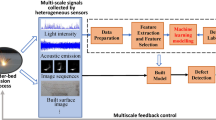Abstract
Demand for plastics is the key driver for petrochemicals and they are predicted to account for more than a third of the growth in world oil demand by 2030. While Plastics provide substantial benefits to society their production presents detrimental environmental challenges that need immediate attention and intervention. Typical Polymer production is a combination of Continuous and Batch processes which makes high level traceability of raw materials, products, while maintaining the quality of the end-product a big challenge. To address this, we developed HYPPOS software that is based on a mathematical material tracking algorithm that discretises the continuous manufacturing processes into identifiable slices of material and tracks them as they move through the manufacturing stages. HYPPOS continuously collects data in real time from the plant instrumentation and feeds this data to its tracking model. HYPPOS algorithm can associate any parameter with each individual slice of material and uses this to infer the quality of the material providing visibility to the operator at an early stage of the process. Many plants rely on off-line laboratory measurements for the critical quality parameters, rather than having online automated measurement instruments. To address this limitation, Machine learning (ML) algorithms were built to implement soft sensors for the quality prediction using the existing plant instrumentation. The ML algorithms were trained, validated, and tested using historic measurements from the plant using a variety of ML models, comprising Linear and Polynomial Regression (LR, PR), XGBoost (XGB) and Random Forests (RF), as well as Artificial Neural Networks (ANNs). The errors of the predictions have thoroughly been analysed, to identify specific patterns such as heteroscedasticity and bias in the residual errors. Finally, the importance of each feature to the target variable has been assessed, utilizing the p-values of the linear model, XGBoost importance, as well as sensitivity analysis of all models, using stochastic perturbation of the input variables. The first results are very encouraging, and we are in the process of integrating them with HYPPOS.
Access this chapter
Tax calculation will be finalised at checkout
Purchases are for personal use only
Similar content being viewed by others
References
Ward, L., et al.: A general-purpose machine learning framework for predicting properties of inorganic materials. NPJ Comput. Mater. 2(1) (2016)
Pilania, G., et al.: Accelerating materials property predictions using machine learning. Sci. Rep. 3(1) (2013)
Bakas, N.P.: Numerical solution for the extrapolation problem of analytic functions. Research (2019)
Al-Hamaydeh, M., et al.: AI-based shear capacity of FRP-reinforced concrete deep beams without stirrups. Eng. Struct. 264 (2022)
Chen, T., Guestrin, C.: XGBoost: a scalable tree boosting system. In: Proceedings of the 22nd ACM SIGKDD International Conference on Knowledge Discovery and Data Mining, 2016 (2016)
Xu, B., Chen, T.: XGBoost.jl (2014)
Sadeghi, B.: DecisionTree.jl (2013)
Breiman, L.: Random forests. Mach. Learn. 45, 5–32 (2001)
Bakas, N., et al.: A Gradient Free Neural Network Framework Based on Universal Approximation Theorem (2019). https://arxiv.org/abs/1909.13563
Acknowledgements
This work received financial support from:
• The Horizon 2020 – 2nd Opportunity program of the European Commission and the Research and Innovation Foundation of Cyprus programs for research, technological development and innovation “RESTART 2016–2020” (RIF PROPOSAL NUMBER: OPPORTUNITY/0916/SME-II/0005).
• The EuroHPC-JU project EuroCC (G.A. 951732) of the European Commission.
• The Research and Innovation Foundation of Cyprus programs for research, technological development and innovation RESTART 2016–2020 (RIF PROPOSAL NUMBER: ENTERPRISES/0521/0175).
Parts of the runs were performed on the Cyclone machine hosted at the HPC National Competence Center of Cyprus at the Cyprus Institute (project pro21b103).
Author information
Authors and Affiliations
Corresponding author
Editor information
Editors and Affiliations
Rights and permissions
Copyright information
© 2023 The Author(s), under exclusive license to Springer Nature Switzerland AG
About this paper
Cite this paper
Doe, S., Kassianides, C., Kassianides, S., Bakas, N., Christodoulou, C. (2023). Next Generation Process Material Tracking and Analytics for the Process Industries Using Machine Learning Algorithms. In: Papadaki, M., Rupino da Cunha, P., Themistocleous, M., Christodoulou, K. (eds) Information Systems. EMCIS 2022. Lecture Notes in Business Information Processing, vol 464. Springer, Cham. https://doi.org/10.1007/978-3-031-30694-5_4
Download citation
DOI: https://doi.org/10.1007/978-3-031-30694-5_4
Published:
Publisher Name: Springer, Cham
Print ISBN: 978-3-031-30693-8
Online ISBN: 978-3-031-30694-5
eBook Packages: Computer ScienceComputer Science (R0)




